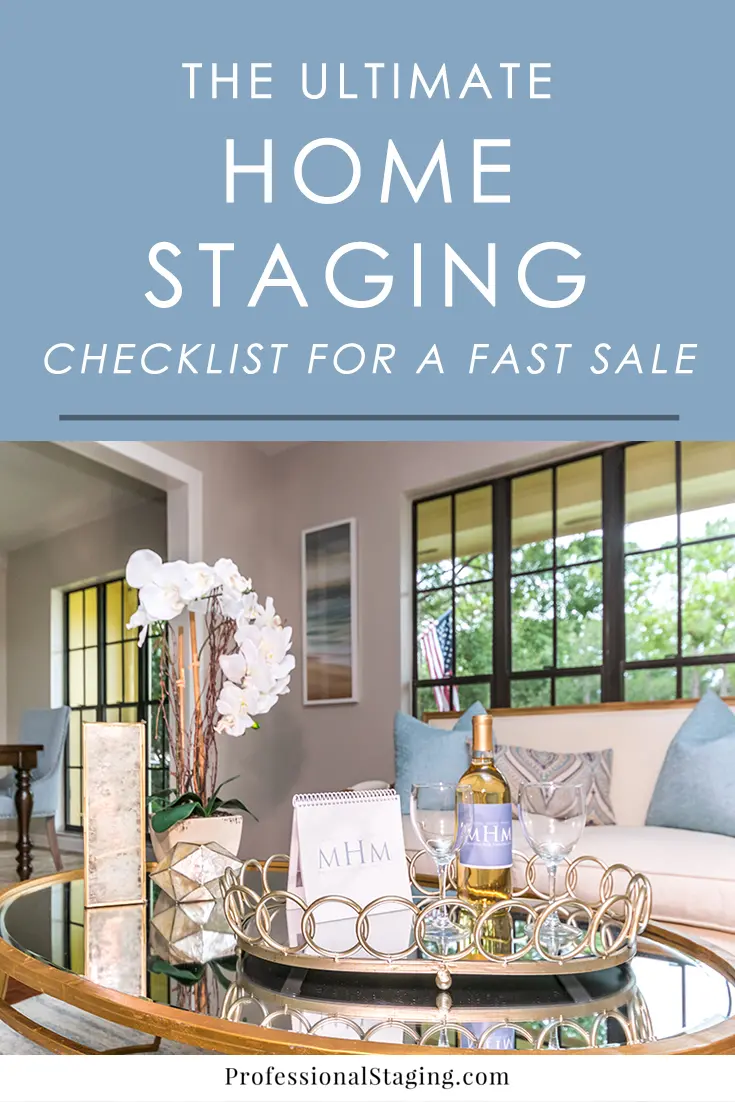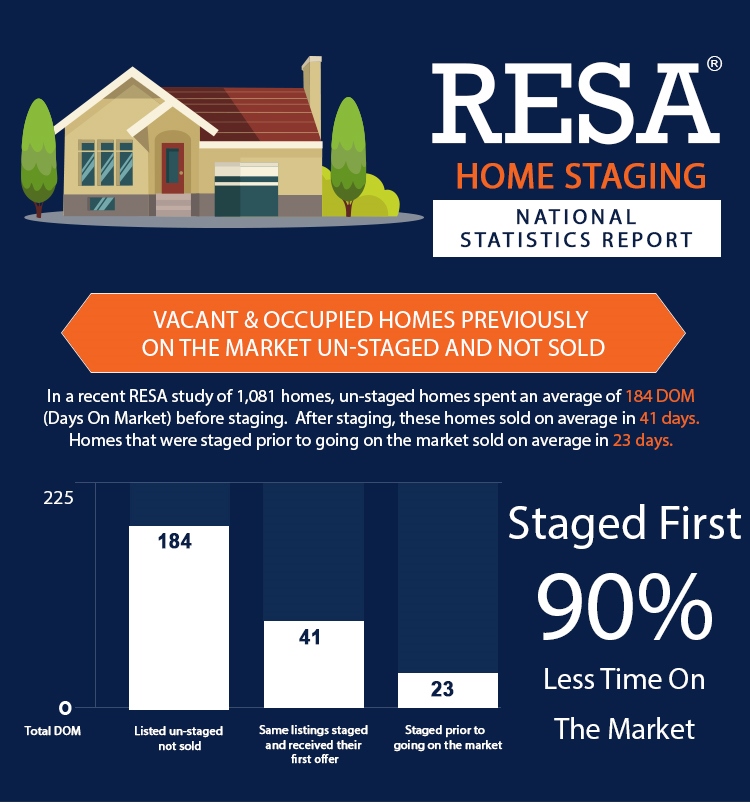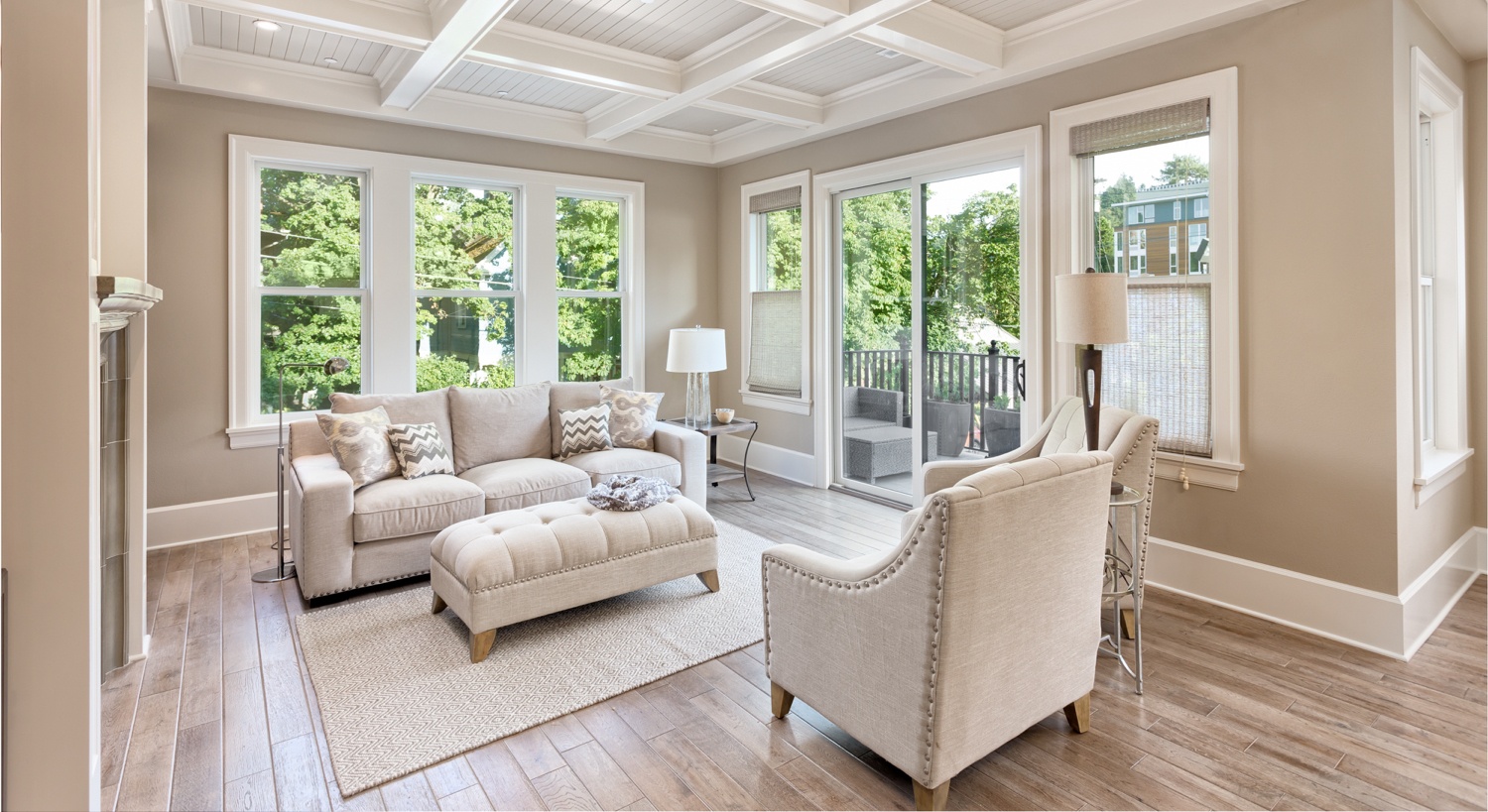Staging a Home for Sale: Unlocking Maximum Value in a Competitive Market
Related Articles: Staging a Home for Sale: Unlocking Maximum Value in a Competitive Market
Introduction
With great pleasure, we will explore the intriguing topic related to Staging a Home for Sale: Unlocking Maximum Value in a Competitive Market. Let’s weave interesting information and offer fresh perspectives to the readers.
Table of Content
Staging a Home for Sale: Unlocking Maximum Value in a Competitive Market

Selling a home is a significant financial decision, and optimizing its presentation for potential buyers is crucial to achieving the best possible outcome. The art of home staging, essentially transforming a lived-in space into a captivating, appealing environment, plays a vital role in attracting buyers and maximizing the selling price. This comprehensive guide delves into the intricacies of home staging, outlining its importance, providing practical tips, and addressing common questions.
The Significance of Home Staging: Beyond Aesthetics
Home staging goes beyond simply making a space look pretty. It’s a strategic approach that leverages psychology and visual appeal to create an emotional connection between potential buyers and the property. Effective staging emphasizes the home’s positive attributes, minimizing distractions, and presenting it as a desirable and inviting space.
Benefits of Home Staging:
- Increased Buyer Interest: A well-staged home captures attention, sparking interest and drawing more potential buyers to view the property. This increased foot traffic translates into a higher likelihood of receiving offers.
- Faster Sale Time: A staged home often sells faster than an unstaged one. Presenting a visually appealing and inviting space encourages buyers to envision themselves living there, accelerating the decision-making process.
- Higher Selling Price: Research consistently demonstrates that staged homes sell for a higher price than unstaged ones. The perceived value and desirability of a well-presented property translate into a more favorable selling price.
- Reduced Time on Market: A staged home spends less time on the market, minimizing the financial and emotional burden associated with a prolonged selling process.
- Competitive Advantage: In a competitive market, staging provides a significant advantage. It allows the property to stand out, making it more memorable and appealing to potential buyers.
Key Elements of Effective Home Staging:
- Declutter and Depersonalize: Remove excessive furniture, personal items, and clutter to create a sense of spaciousness and allow buyers to envision their own belongings in the space.
- Neutral Color Palette: Paint walls in neutral colors like beige, gray, or white to create a blank canvas that appeals to a wider range of buyers. A neutral backdrop allows potential buyers to focus on the home’s features rather than being distracted by bold colors.
- Maximize Natural Light: Open curtains and blinds to flood the space with natural light, creating a bright and welcoming atmosphere. Consider using mirrors to reflect light and enhance the sense of space.
- Enhance Curb Appeal: The first impression is crucial. Ensure the exterior of the home is tidy, landscaping is well-maintained, and the front door is inviting.
- Focus on Key Areas: Prioritize staging efforts in high-traffic areas like the living room, kitchen, and master bedroom, as these spaces have the greatest impact on buyers’ impressions.
- Create a Flow: Ensure furniture placement facilitates easy movement throughout the home, allowing buyers to comfortably navigate each space.
- Add Touches of Style: Introduce tasteful accessories, artwork, and decorative elements to add personality and create a sense of warmth and comfort.
- Maintain a Clean and Fresh Scent: Ensure the home is spotless and free of any lingering odors. A pleasant scent can create a positive impression and enhance the overall experience.
Addressing Common Questions about Home Staging:
1. Is Home Staging Worth the Investment?
The cost of home staging is often offset by the potential for a higher selling price and a faster sale. Consult with a professional stager to discuss options and tailor a plan that fits your budget.
2. Who Should Stage Their Home?
Home staging is beneficial for all sellers, regardless of the condition or size of the property. It can help to highlight the best features of a home and minimize any potential drawbacks.
3. How Do I Choose a Home Stager?
Look for a professional stager with experience, a portfolio of successful projects, and positive client testimonials. Interview potential stagers to discuss their approach, pricing, and services.
4. Can I Stage My Own Home?
While DIY staging is possible, it requires a keen eye for design, a strong understanding of market trends, and the ability to objectively assess the property’s strengths and weaknesses. If you’re unsure, consider consulting with a professional stager for guidance.
5. When Should I Stage My Home?
Ideally, staging should be completed before listing the property. This allows potential buyers to experience the home at its best from the moment they step inside.
Tips for Successful Home Staging:
- Prioritize Functionality: Ensure furniture and decor are functional and practical, catering to the needs and preferences of potential buyers.
- Consider the Target Audience: Tailor the staging to the target audience for the property. For example, a family home might feature a play area for children, while a modern condo could emphasize minimalist design and sleek finishes.
- Emphasize Natural Light: Maximize the use of natural light by opening curtains, blinds, and windows. Consider using light-colored furniture and accessories to reflect light and create a sense of spaciousness.
- Create a Focal Point: Draw attention to the home’s most desirable features by creating focal points in each room. This could involve highlighting a fireplace, a large window with a view, or a beautifully designed kitchen island.
- Maintain a Consistent Style: Ensure all staging elements complement each other and create a cohesive and harmonious aesthetic throughout the home.
- Focus on Cleanliness: A clean and tidy home is essential for creating a positive impression. Make sure all surfaces are dusted, floors are vacuumed, and bathrooms are sparkling.
- Consider Professional Photography: High-quality photographs are crucial for showcasing the home online and attracting potential buyers. Invest in professional photography to capture the staged home at its best.
Conclusion: Unlocking the Full Potential of Your Home
Home staging is an investment that yields significant returns, contributing to a faster sale, a higher selling price, and a smoother overall experience for both the seller and the buyer. By presenting the home in its most desirable light, staging creates a positive emotional connection, enhancing the perceived value and making the property stand out in a competitive market.
Investing in professional staging or employing these practical tips can make a substantial difference in achieving your home selling goals. Remember, a well-staged home speaks volumes, creating a lasting impression and maximizing the chances of a successful sale.








Closure
Thus, we hope this article has provided valuable insights into Staging a Home for Sale: Unlocking Maximum Value in a Competitive Market. We thank you for taking the time to read this article. See you in our next article!